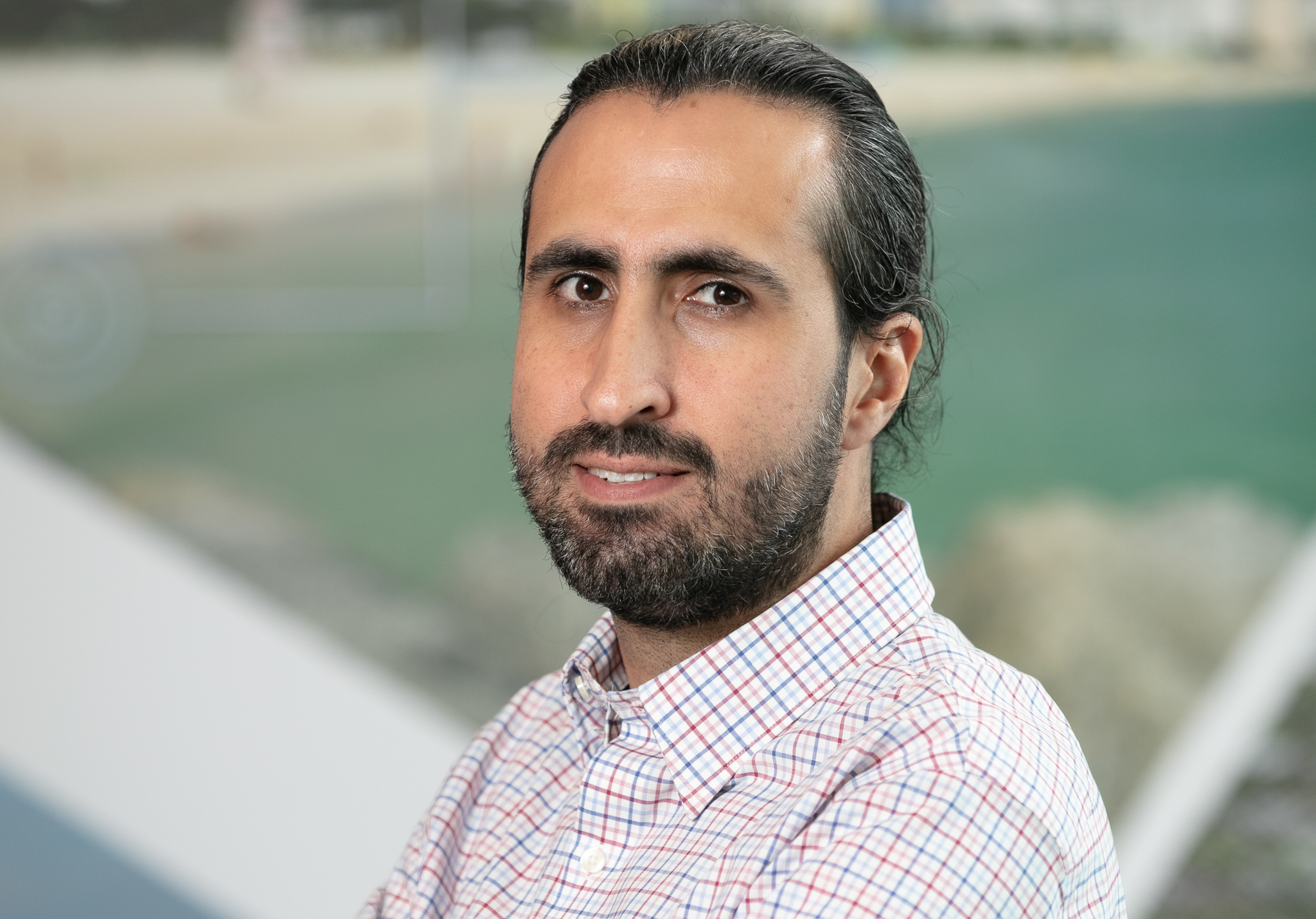FAU Student Innovates to Advance Parkinson’s Disease Management: Mustafa Shuqair’s Pioneering Work with AI and Wearables
by Behnaz Ghoraani | Friday, Nov 22, 2024
Mustafa Shuqair, a Ph.D. candidate of the College of Engineering and Computer Science at Florida Atlantic University, is shaping the future of healthcare with groundbreaking research aimed at enhancing the quality of life for individuals with Parkinson’s disease. Under the mentorship of Dr. Behnaz Ghoraani, Co-Director of the Center for SMART Health and Associate Professor at FAU, and supported by an NSF grant to Dr. Ghoraani, Mustafa’s innovative work integrates artificial intelligence (AI) and wearable technologies to enhance medical diagnostics and treatment.
Starting his academic journey in Jordan where he first combined intelligent systems with hardware and software design, Mustafa has always been passionate about applying technology to solve real-world challenges. This passion led him to pursue a master’s degree in Germany, where he specialized in mechatronics and further developed his skills in artificial neural networks, signal, and image processing. His master’s thesis on enhancing the computer vision capabilities of a medical robot arm paved the way for his current focus on neurological health solutions.
At FAU, Mustafa’s research has been transformative, particularly in managing Parkinson’s disease—a condition that affects millions worldwide. His latest study, “Reinforcement Learning-Based Adaptive Classification for Medication State Monitoring in Parkinson’s Disease,” published in the IEEE Journal of Biomedical and Health Informatics, introduces a novel method for monitoring medication states using wearable sensor data and reinforcement learning algorithms. This method provides real-time, personalized medication management, a critical advancement for patients experiencing varying symptoms and medication effects.
Mustafa’s innovative approach utilizes accelerometer and gyroscope data from wearable devices to capture and analyze patient movements. The application of reinforcement learning allows the system to adapt continuously to the patient’s condition, improving its accuracy and reliability in real-world scenarios. This research supports clinicians in optimizing treatment plans and empowers patients with better understanding and control over their condition.
This project also benefits from the clinical insights of Dr. Joohi Jimenez-Shahed, an Associate Professor of Neurology and Medical Director at Mount Sinai’s Department of Neurology, Icahn School of Medicine. Her expertise in neurology provides essential clinical relevance to the research, ensuring it meets real-world healthcare needs.
The significance of Mustafa’s work aligns closely with the goals of FAU’s Center for SMART Health, which emphasizes the development of AI-driven health solutions and the advancement of non-invasive monitoring technologies. Mustafa contributes to the Center’s mission to revolutionize how chronic diseases are managed by pushing the boundaries of AI in healthcare.
Looking ahead, Mustafa plans to expand the scope of his research to encompass broader applications of AI in healthcare. He aims to enhance health monitoring systems, apply his findings to other healthcare areas, and explore the intersection of robotics and healthcare, drawing on his background in mechatronics. His vision extends to collaborating with healthcare institutions and industry partners to translate his research into practical solutions that can be widely implemented.
Reflecting on his journey, Mustafa values the interdisciplinary collaboration that has enriched his research experience and deepened his understanding of the challenges in healthcare. His work exemplifies innovative technology and collaborative research’s profound impact on improving patient outcomes. As he continues his journey, Mustafa is advancing his field and paving the way for future technologies that will transform healthcare delivery and patient care.